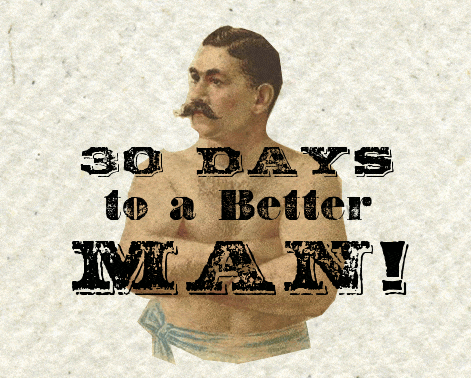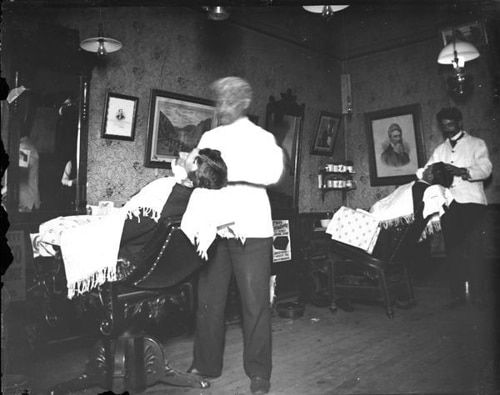Before Google and the internet, people memorized stuff. When your grandpa went to school, memorization was the main method of learning, and he had to commit things like the Gettysburg Address and sonnets by William Shakespeare to memory. Decades ago, rote leaning went entirely out of fashion amongst educators, in favor of helping students think creatively and problem solve. Yet, the pendulum swung a bit too far, and the baby got chucked out with the bathwater. For in truth, there are many advantages to memorizing information. After all, while it’s important to be able to think and apply knowledge, if you don’t have any knowledge to apply, knowing how to apply it is pretty useless. This is where memorization comes in.
The ancient Greeks understood this. They began the schooling of their young men by having them memorize the poetry of Homer or the wise words of Solon, the founder of Athenian democracy. The Athenians believed that by memorizing great poetry they were helping their citizens develop a mastery of language that would serve them well in the halls of the Assembly. Moreover, memorization of noble poetry burned the ideals of Athenian society deep into the souls of its citizens.
The West’s most famous wordsmith, William Shakespeare, gained his education by memorizing the epic poetry of the classical world. Through this practice, the Bard developed an ear for the sophisticated rhythms and patterns of language, helping him churn out some of civilization’s most cherished pieces of literature. Moreover, by memorizing the myths and stories of the ancient world, Shakespeare had a fountain of creative resources to draw upon as he wrote his plays.
Almost the entirety of Abraham Lincoln’s education was self-directed. Lacking formal schooling, he consumed books with an insatiable desire, reading snatches of them whenever he could. He also committed to memory numerous passages from his favorite books. It enabled him to learn the musicality present in great writing. It’s no coincidence that the mind that produced the Gettysburg Address had at its immediate disposable snippets from the world’s finest authors.
These days, people have to google something if they want to remember the words to a poem or some other famous piece of literature. Heck, we even need Google to remember the capital of Vermont. In a recent article in the Atlantic Monthly, one writer makes the case that Google is making us dumber. And he’s probably right.
So today, we’re going reverse the trend of having to depend on the Google crutch by memorizing Rudyard Kipling’s poem If. Let’s get started.
Why Memorize Things
There are countless benefits to memorizing great poems and passages. Here are a few for consideration:
Improved writing. As you memorize great poetry and other worthy pieces of literature, you’ll be begin to internalize the rhythm and structure employed by some of the world’s greatest writers. Etching these things into your brain allows some of that magic to make it’s way into your own writing. Benjamin Franklin was a believer. According to his autobiography, Franklin set out to improve his writing by memorizing the works of writers he admired.
Increased vocabulary. In the course of memorizing, you’ll undoubtedly encounter words you’ve never seen or don’t know the meaning of. By memorizing the word within the context of the poem, it will be easier to recall its meaning and use it later than if you had tried to memorize the word alone.
A more interesting personality. I’ve always been impressed by that very rare man who can weave a snippet of a great speech or poem into a conversation. Being able to throw some inspiration from Wordsworth or a bit of wit from Twain into your conversations can definitely distinguish you as a gentleman of letters. The trick is to be discriminating when you start reciting stuff. If you do it too much or at the wrong times, you’ll just make yourself look like a pompous ass.
A strengthened backbone. The most important benefit of memorizing passages from great works is that you’ll be storing up a treasure trove of wisdom and knowledge that you can immediately access when you need extra motivation to man up. Feeling a little nervous while you’re waiting in the lobby for a job interview? Recite Theodore Roosevelt’s “Man in the Arena” to yourself. Perhaps you’ve been put in a leadership position and need to get psyched up to lead your group to success. There’s probably a poem or a great speech that can be used to motivate you for any facet of your life.
Tips on Memorizing
When I was in law school, I often had to memorize 40 pages of a class outline. So I was always looking for new ways to improve my ability to memorize.
I’m a big fan of the peg system, the link system, and mindmaps. Unfortunately, I found these techniques useless for memorizing 40 page law school outlines filled with abstract legal doctrine. So I came up with my own system, which I call “brute force memorization.” It ain’t pretty or efficient, but it gets the job done.
The Brute Force Memorization Process
While reading the sentence I want to memorize aloud, I’ll type it into my computer. I repeat this process five times with each line of data I want to memorize. In this way, I get visual stimulation by reading and auditory stimulation from the reading aloud. And writing things down is one of the best ways to remember things. These three things done simultaneously produce a trifecta of memorizing power.
And of course, repetition crams the info into your brain. If I’m having trouble memorizing a particular piece of information, I’ll keep repeating the process until I’ve got it down
I’ve been doing this for years and it has always helped me remember those pesky details I’ve needed to know for school or other things.
Caveat: I don’t completely abandon other memorizing techniques while doing this. I often incorporate them in the process when I see they would work. For example, something else I’ll do is a technique that was used by those memorization gurus, the ancient Greeks. The Greeks are the originators of mnemonic devices (from “mnemonikos” which is itself derived from Mnemosyne, the name of the Goddess of Memory). Orators faced the daunting task of memorizing long speeches and employed the “method of loci” in order to do so. They would picture a house and place “objects” (words they wanted to remember from the speech or poem) in different rooms in the imaginary house. Then, to remember the speech, they would “walk” through the house picking up each “object” as they went.
Today’s Task: Memorize If by Rudyard Kipling
Exercising your memorization muscles is clearly beneficial, but many men are totally out of practice or have never tried. So today we’re going to start working out those muscles, starting with one of the manliest poems ever written- If- by Rudyard Kipling. It’s a poem that every man should have thoroughly lodged in his head, ready to conjure up whenever he’s feeling down.
It’s not too short, but it’s not too long either. I think memorizing it is doable in the next day or two. Go to it!
“If”
By: Rudyard Kipling
If you can keep your head when all about you
Are losing theirs and blaming it on you,
If you can trust yourself when all men doubt you
But make allowance for their doubting too,
If you can wait and not be tired by waiting,
Or being lied about, don’t deal in lies,
Or being hated, don’t give way to hating,
And yet don’t look too good, nor talk too wise:If you can dream–and not make dreams your master,
If you can think–and not make thoughts your aim;
If you can meet with Triumph and Disaster
And treat those two impostors just the same;
If you can bear to hear the truth you’ve spoken
Twisted by knaves to make a trap for fools,
Or watch the things you gave your life to, broken,
And stoop and build ‘em up with worn-out tools:If you can make one heap of all your winnings
And risk it all on one turn of pitch-and-toss,
And lose, and start again at your beginnings
And never breath a word about your loss;
If you can force your heart and nerve and sinew
To serve your turn long after they are gone,
And so hold on when there is nothing in you
Except the Will which says to them: “Hold on!”If you can talk with crowds and keep your virtue,
Or walk with kings–nor lose the common touch,
If neither foes nor loving friends can hurt you;
If all men count with you, but none too much,
If you can fill the unforgiving minute
With sixty seconds’ worth of distance run,
Yours is the Earth and everything that’s in it,
And–which is more–you’ll be a Man, my son!



